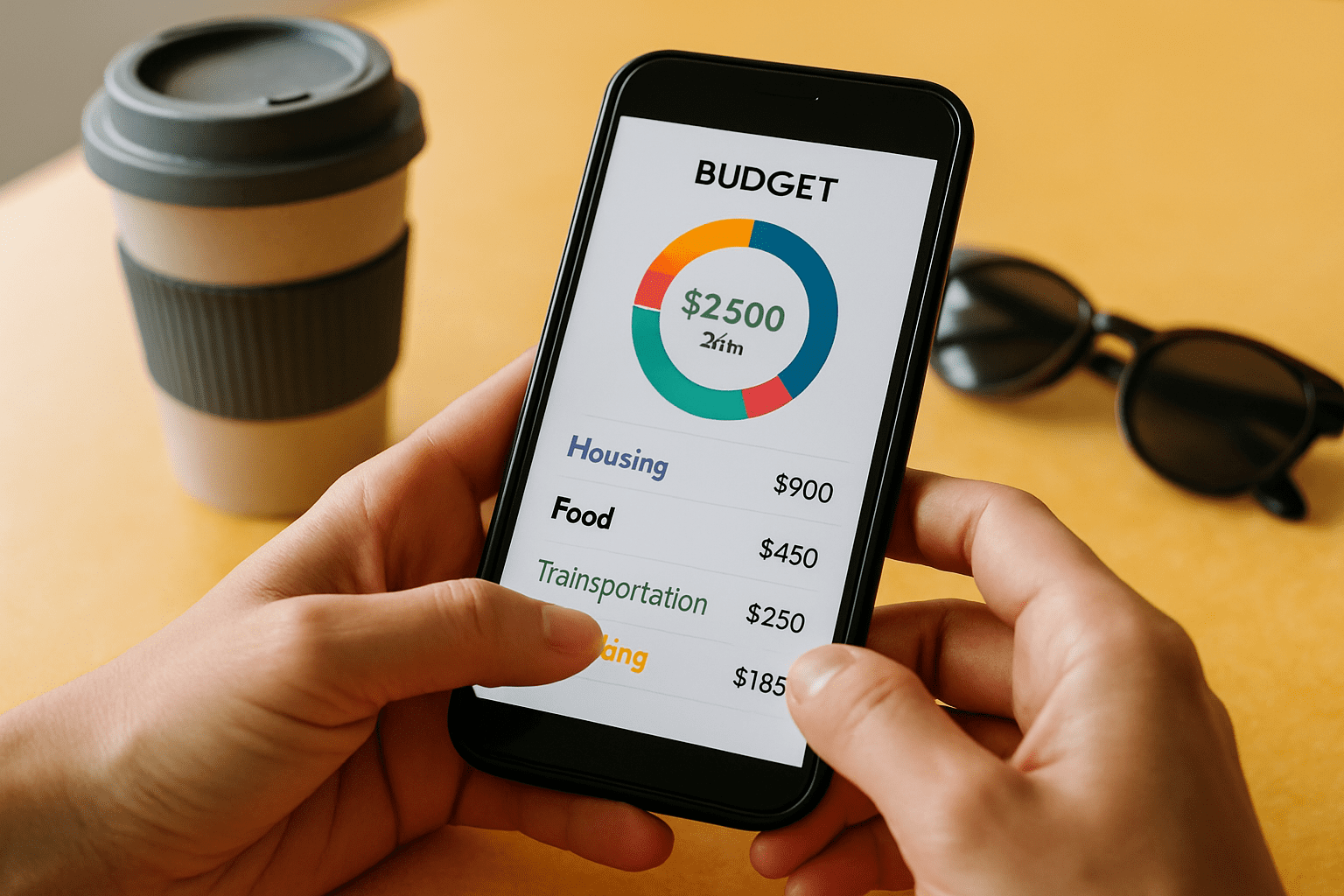How Gen Z Is Looking for New Tools, Not Just Lessons, for Building Money Confidence
Imagine worrying about money almost every single day—even in your late teens or early twenties. For a surprising number of young adults, that’s reality. In the UK, one-third of people aged 18–21 say money is a daily concern. At the same time, fewer than one in three report learning about credit or student loans in school. Despite the stress, Generation Z isn’t just waiting for a classroom fix—they’re hunting for real tools and digital solutions that fit the ways they live and learn. Let’s look at how Gen Z is tackling financial confidence, and how you can tap into new money tools to feel more secure about your own future.
Understanding Gen Z’s Money Stress—and Why Lessons Alone Aren’t Enough
Money worries are front and center for many young people, and for good reason. Costs are rising, student loans are common, and jobs right out of school don’t always pay as much as you’d hope. In fact, a recent survey by Santander UK found that less than a third of 18–21 year-olds learned about student loans at school. It’s no wonder that up to 43% of teens in the US admit to being ‘terrified’ about their financial futures.
The good news is there are more financial literacy classes than ever before. But even when young adults take these courses, many say they still don’t feel prepared for real-life money choices—like building credit, handling debt, or making their first investment.
“Despite an increase in financial literacy offerings in high schools, a growing number of teenagers remain deeply anxious about their financial futures.” — Junior Achievement and MissionSquare Retirement Foundation study (2025)
Why is this happening? Think of money skills like learning to drive. You can read about the rules and watch videos, but until you sit behind the wheel, it’s tough to feel confident. Many Gen Zers want the financial equivalent of driving lessons—a toolkit that helps them ‘practice’ with their real money, using real apps, in real situations.
If you’re in this group, you’re not alone! Practicing money management with the latest digital tools—even if you start small—can help you feel more in control. Try tracking your spending for one week with a free budget app just to see where your money goes. Then, research one money term you don’t know (like “credit utilization” or “APR”) and write down what you learn. Both steps can boost your money smarts and make ‘finance’ feel less scary.
Next step: Pick one digital tool (many are free) and use it just once this week. Aim for progress, not perfection—money confidence builds, brick by brick!
The Rise of Digital Tools: From AI-Powered Money Apps to Loud Budgeting
Technology is changing the way young adults handle their finances—sometimes overnight. Today’s apps use artificial intelligence (AI) to help you track spending, create budgets, and even alert you to sneaky subscriptions. One standout feature? These tools give instant feedback, which means you can spot money mistakes before they snowball.
For example, some AI-powered apps automatically sort your expenses, so you can see how much went to food, rent, fun, or extras. Others will ‘nudge’ you with gentle reminders if you’re spending faster than usual. This kind of real-time support can make your money choices easier and less stressful.
“AI-driven apps assist users in tracking expenses, creating budgets, and analyzing spending habits,” reports the Financial Times.
But tech also comes with new risks. Some apps may not fully protect your privacy, or might base their advice on data that isn’t quite right for you. And if an app suggests a risky investment or nudges you toward costly credit, it can backfire. Always read reviews, check privacy policies, and trust your gut if an app asks for too much info.
An exciting trend born on TikTok is “loud budgeting.” This simply means openly talking about your budget and savings goals—and not being shy about saying “no thanks” to spending you can’t afford. More and more people are sharing their money decisions out loud, which can help break the stigma around budgeting on a small income.
Here’s a simple tip: Join an online budgeting challenge, or post (even anonymously) about one money goal this month. When you make financial goals social—even just by telling a friend—you’re more likely to stick with them. If you’d rather stay private, use an app’s “goal” feature to track your progress just for yourself.
Next step: Try out a budgeting app, and if you feel comfortable, share your goal or progress with someone you trust. Small steps can make money talk less awkward—and more empowering.

Smart Investing, Social Influence, and New Ways to Avoid Debt Traps
Gen Z isn’t waiting to start investing—in fact, almost a third begin investing while still in college, thanks to mobile apps with low fees and loads of explainer videos. But here’s where it gets tricky: Many are buying cryptocurrencies or following investment ideas they see on social media, sometimes without understanding all the risks.
Financial influencers like the so-called “hustle bros” are everywhere, showing off fancy cars and quick-money tips. Not all advice online is bad, but be cautious about anyone promising huge rewards with little effort. Real investing always carries risk, and anyone can post advice on social media, even if they’re not a real expert.
“While some influencers offer valuable insights, others may promote risky strategies without proper credentials,” the Financial Times warns.
Luckily, new banking apps are being built just for students and young adults, offering clear info about student loans, credit, and even helping you apply for scholarships or jobs. Startups like Mos are leading the way, trying to be a ‘one-stop shop’ for student finances. The goal? Make it easier to avoid the debt traps that caught so many earlier generations.
Your next steps: First, don’t rush into investing. Before you buy any stock, crypto, or mutual fund, read at least one ‘pros and cons’ article, and use a risk calculator to see how a loss might affect your savings. Set up alerts in your banking app to keep tabs on every purchase—knowing where your money goes is half the battle. And if you’re ever unsure about a money move, ask someone you trust or double-check with a nonprofit financial help line.
Remember: Building money confidence doesn’t mean never making a mistake. It means having tools, support, and a plan for handling money in the real world. Try one new tool at a time, and celebrate small wins. You’ve got this!

